The best smart thermostat connects your home’s heating and air conditioning to the internet so it can be controlled even when you’re not around. You’ll no longer waste energy (and money) because the heating is running full blast in an empty home because you’re late leaving work.
The best smart thermostat comes in two different models; those that allow you to switch the heating and cooling systems on or off remotely, and those that ensure you can adjust the temperature in individual rooms.
As well as using your smartphone to adjust the temperature or switch the heating or air conditioning on or off, you can also use Alexa, Google Assistant or Siri if you have one of the best smart speakers or smart displays in your home too.
Smart thermostats will also integrate with other compatible smart home devices and allow you to automate your home; for example, dimming the smart lights and switching on lamps connected to smart plugs at the same time as your smart thermostat raises the temperature by a few degrees to create a warm, cozy atmosphere without you having to lift a finger.
There are a range of different smart thermostats on the market from brands such as Nest and Ecobee, as well as HVAC stalwarts like Honeywell, which can leave you feeling overwhelmed when it comes to choosing the right one for you. We’ve put an array of designs to the test, living with them in our homes to discover just which is the best smart thermostat for 2021.
UPDATE: Amazon recently unveiled the Alexa Smart Thermostat, which at $59.99 (about £45 / AU$80), will be one of the most affordable smart thermostats on the market. Due to be launched in the US later this year, Amazon’s rival to Google Nest utilizes the existing Alexa Hunches feature to automatically lower the temperature if it thinks you’re away from home or have retired for the night.
The best smart thermostats 2021: ranked
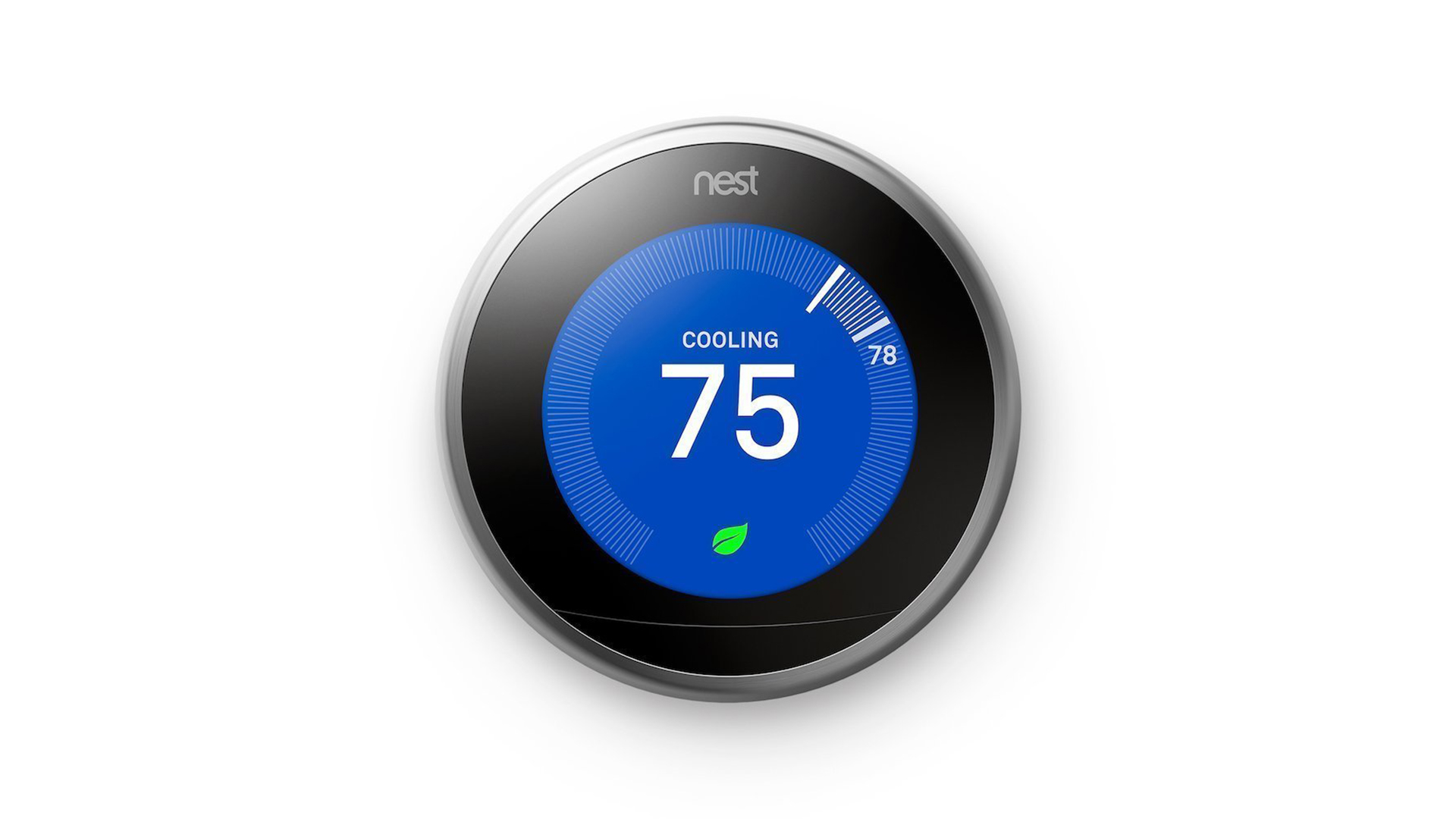
The Nest Learning Thermostat (third generation) strikes the right balance between style and smart, making it our pick as the best smart thermostat you can buy.
It learns your routines and adjusts itself accordingly. This means that over time your heating system can actually adapt to suit your needs, without you having to do anything.
It also benefits from location-based features that track where your phone is and will turn the heating on or off depending on your location. But don't worry that it's going to turn off the heating and leave your guests to freeze when you're out, as its built-in sensors enable it to detect whether there's anyone at home.
The main criticisms of the Nest Learning Thermostat are that it doesn't offer zonal control, so while you'll be able to digitally control your property as a whole, you'll still have to manually adjust individual radiators.
Read the full review: Nest Learning Thermostat 3rd generation
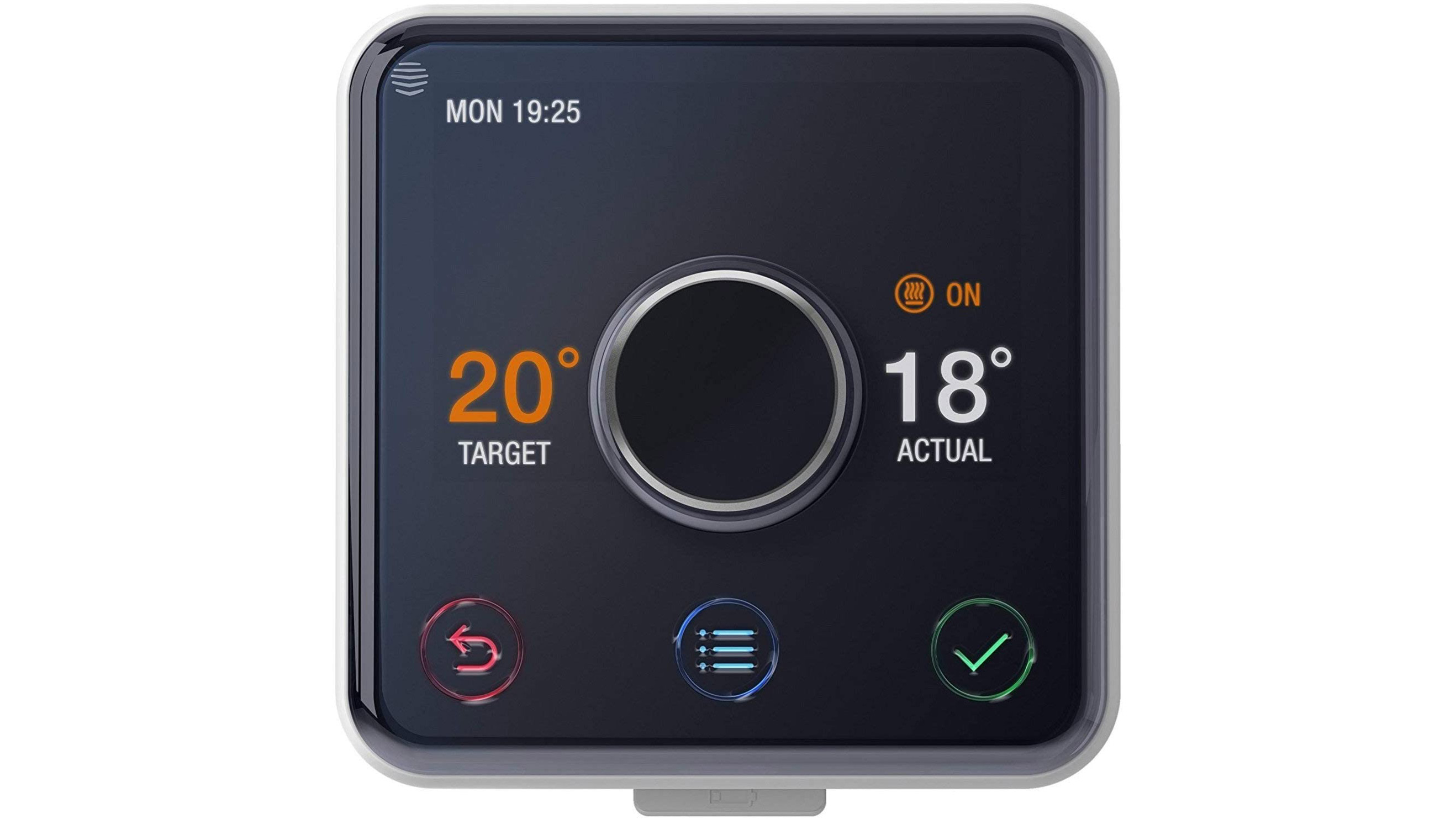
If you want a smart thermostat that forms the basis of a smart home ecosystem you can build on, Hive Active Heating 2 is a good fit.
The thermostat itself is a collaboration between Hive and Swiss designer Yves Béhar, who's responsible for everything from the August smart lock to PayPal's brand identity. That top-quality styling makes the Hive Active Heating thermostat something you'll be proud to have on your wall.
When it comes to the ecosystem Hive offers a range of home security cameras, smart lights, and smart plugs, all of which can be controlled from the Hive app.
On test, we found it its simple interface and easy voice assistant integration made it a breeze to use.
It's worth noting that, like the Nest thermostat above, Hive Active Heating doesn't support Apple's HomeKit, so it's best avoided if you're already invested in Apple's smart home ecosystem.
Read the full review: Hive Active Heating 2
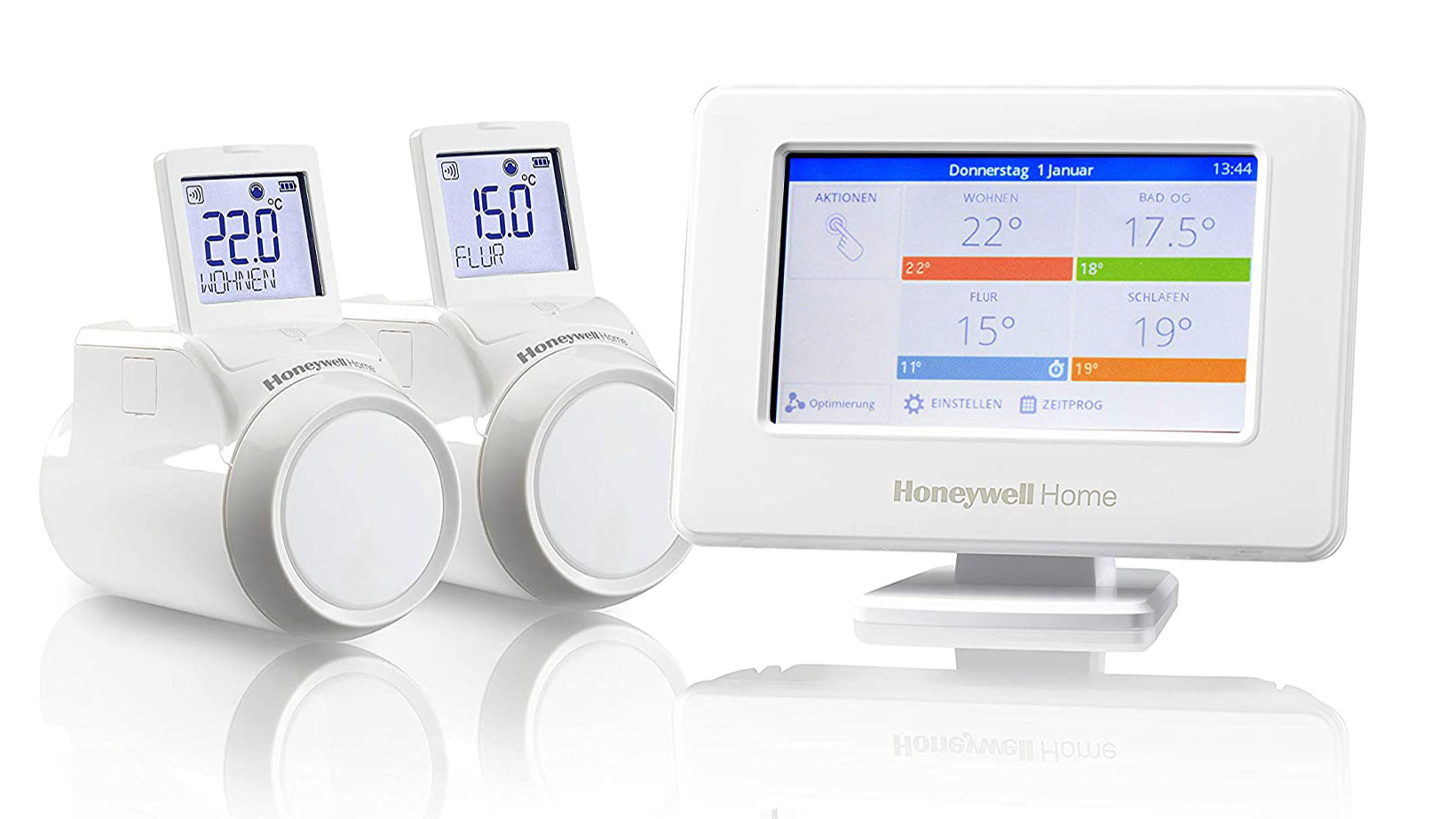
The Honeywell Evohome gives you total control over your home, with individual thermostats for each radiator enabling you to set an independent heating schedule for every room in your house.
It's difficult to grasp what a difference this feature makes until you've tried it for yourself. If you live in a house where different inhabitants prefer a different temperature, or if one room always seems to be hotter or colder than the others, this system is going to be a godsend.
What's more, it works with under-floor heating too, so even if you have a large and complicated heating system the Evohome gives you total control over all of it via an app that's a pleasure to use.
The control panel and radiator thermostats aren't going to win any awards for design, coming as they do in plain white plastic, but that's not really the point of the Evohome. It's expensive too - as you'll need a smart valve for each radiator in your home, however it's worth it for the granular control you get over your heating.
Read the full review: Honeywell Evohome
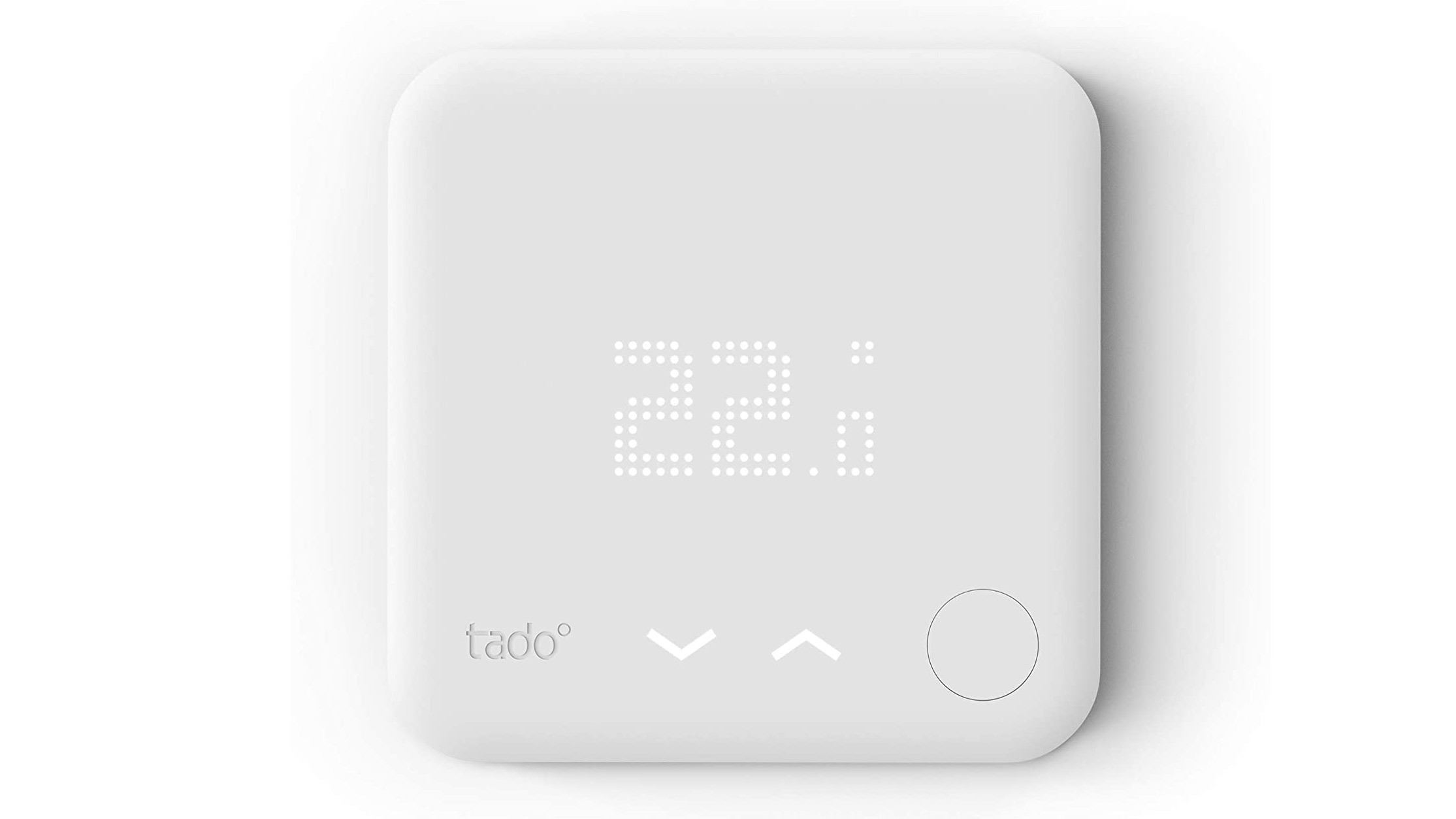
The Tado Smart Thermostat is an easy-to-use smart thermostat that boasts a simplistic white design, and can be used on its own or with additional radiator valves for zonal control.
It also stands out as it's one of a few smart thermostats that work with Alexa, Google Assistant, and Apple's HomeKit – if you're the proud owner of a HomePod, or you're firmly entrenched in the Apple ecosystem, this is probably the best smart thermostat for you.
However, we found the app is unintuitive to navigate, and compared to the incredibly user-friendly app on the Evohome, it's positively difficult.There's no self-learning capabilities, either.
The Tado Smart Thermostat isn't currently available in the US, but as Tado's Cooling system is sold there we'd be surprised if it didn't become available at some point.
Read the full review: Tado Smart Thermostat
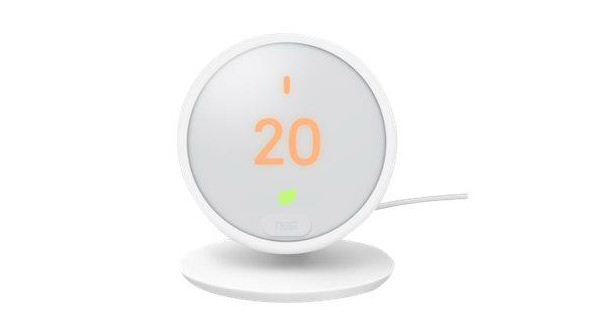
If you like the look of the Nest Learning Thermostat but don't fancy shelling out the money for it, there's a cheaper alternative. It definitely looks cheaper – it's made of white plastic, with a white coating on the plastic screen that can make it hard to see the information being displayed – but it does echo the design language of the original Nest Thermostat, so you'll be more than happy to have it on your wall.
As the Nest's smaller sibling it benefits from industry-leading smarts, lacking only the most advanced features of the premium model, such as the self-learning capabilities. The app is simple to use too.
The Nest E is a great example of how to streamline a flagship product to make a cheap alternative without damaging the qualities that made the original great. Make no mistake, this isn't flagship quality for a bargain price, but it's great value for what it is.
Read the full review: Nest Thermostat E
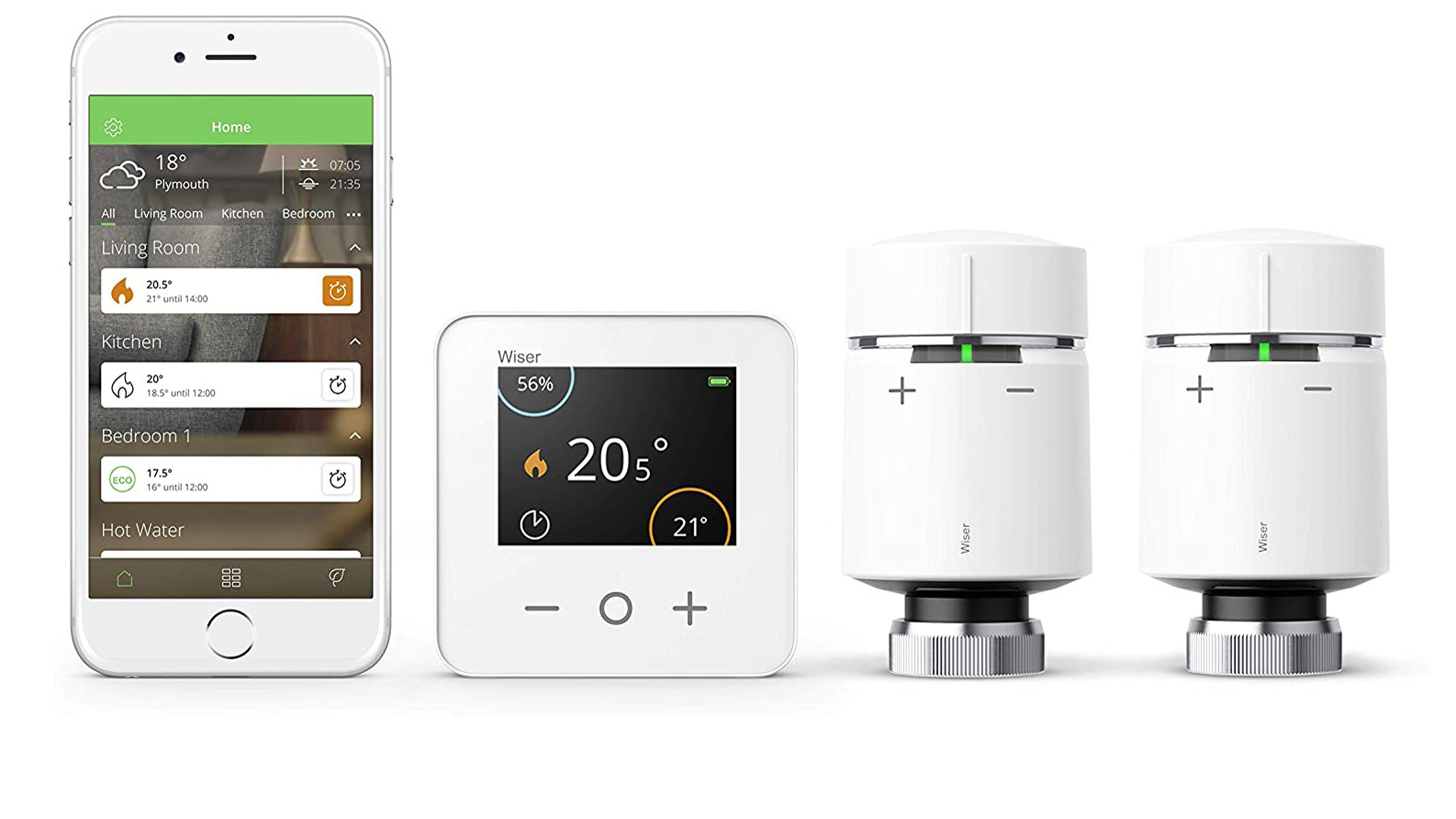
Love the idea of zonal heating control, but you're on a budget? Then Drayton Wiser is worth considering.
You'll need a thermostat for each radiator in your home to get the most out of the system, but as thermostats are around a third cheaper than rival systems from Honeywell and Tado, it makes the overall cost more affordable.
It's simple to use and will switch the boiler on or off earlier than scheduled to ensure rooms in your home are at the temperature you want, when you want them. It's also got Open Window Detection to help stop energy wastage by switching off the boiler if it detects a window has been opened and works with Alexa and Google Assistant, too.
However, it's not the most stylish of thermostats on the market, and there's no way to see the temperature of the room from the radiator thermostat itself - you'll need to open the app on your smartphone. That said, it's hard to beat if you're on a budget and want full control over your heating.
Read the full review: Drayton Wiser
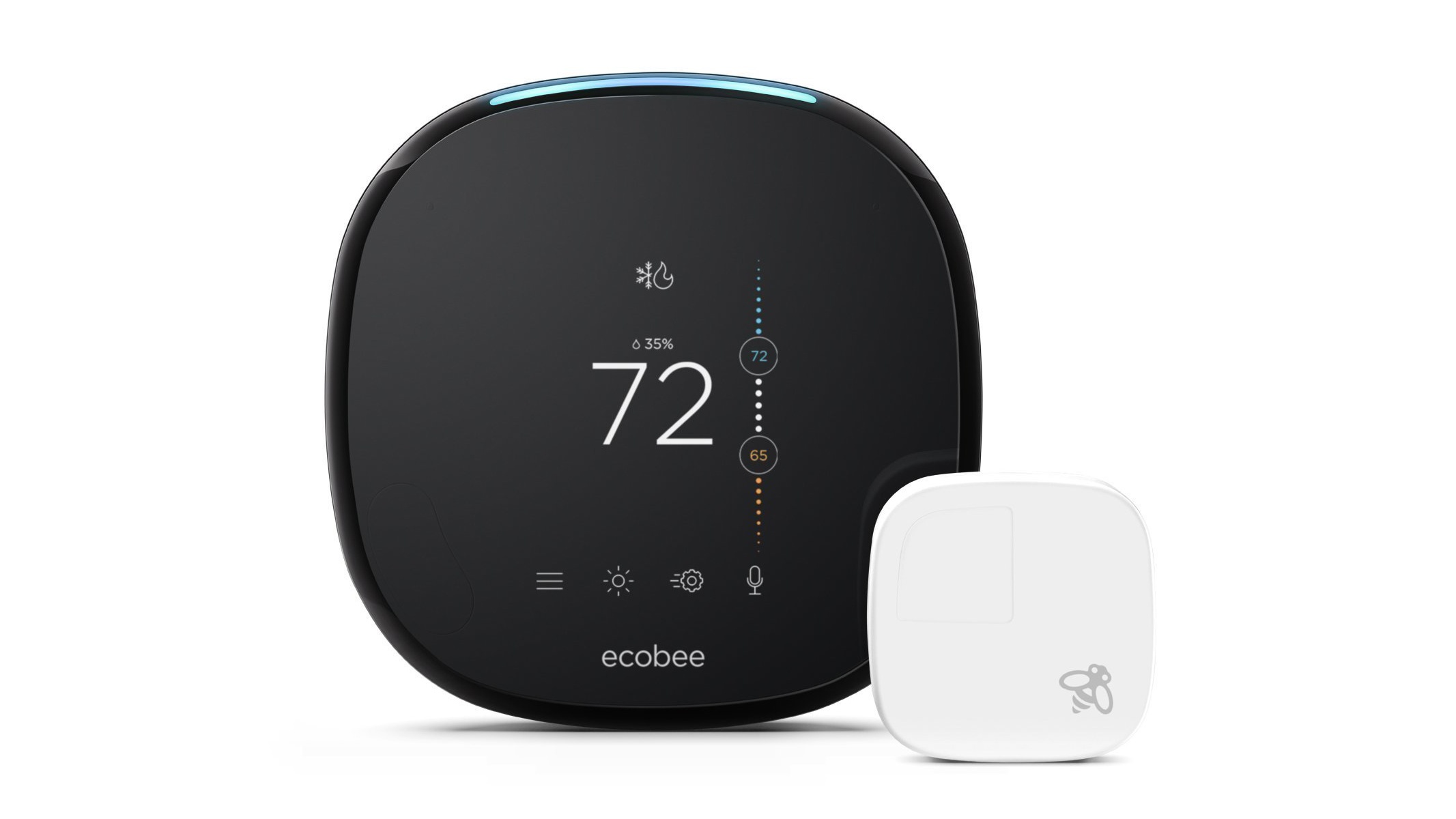
If it's available where you live, the Ecobee SmartThermostat with voice is well-worth auditioning for your smart home setup. Unlike any of the other entries on this list, the Ecobee4 comes with Alexa built right in.
That means, not only is it a great thermostat that can save you bundles on your energy bill each month but it doubles as a conduit to Alexa and its 10,000-strong library of skills. It's easy to install and is self-learning and will adjust your schedule accordingly as is learns how quickly your house heats up and cools down.
While Ecobee may not have the same clout that Nest has garnered in the last few years, it remains one of the best thermostats on the market, bar none.
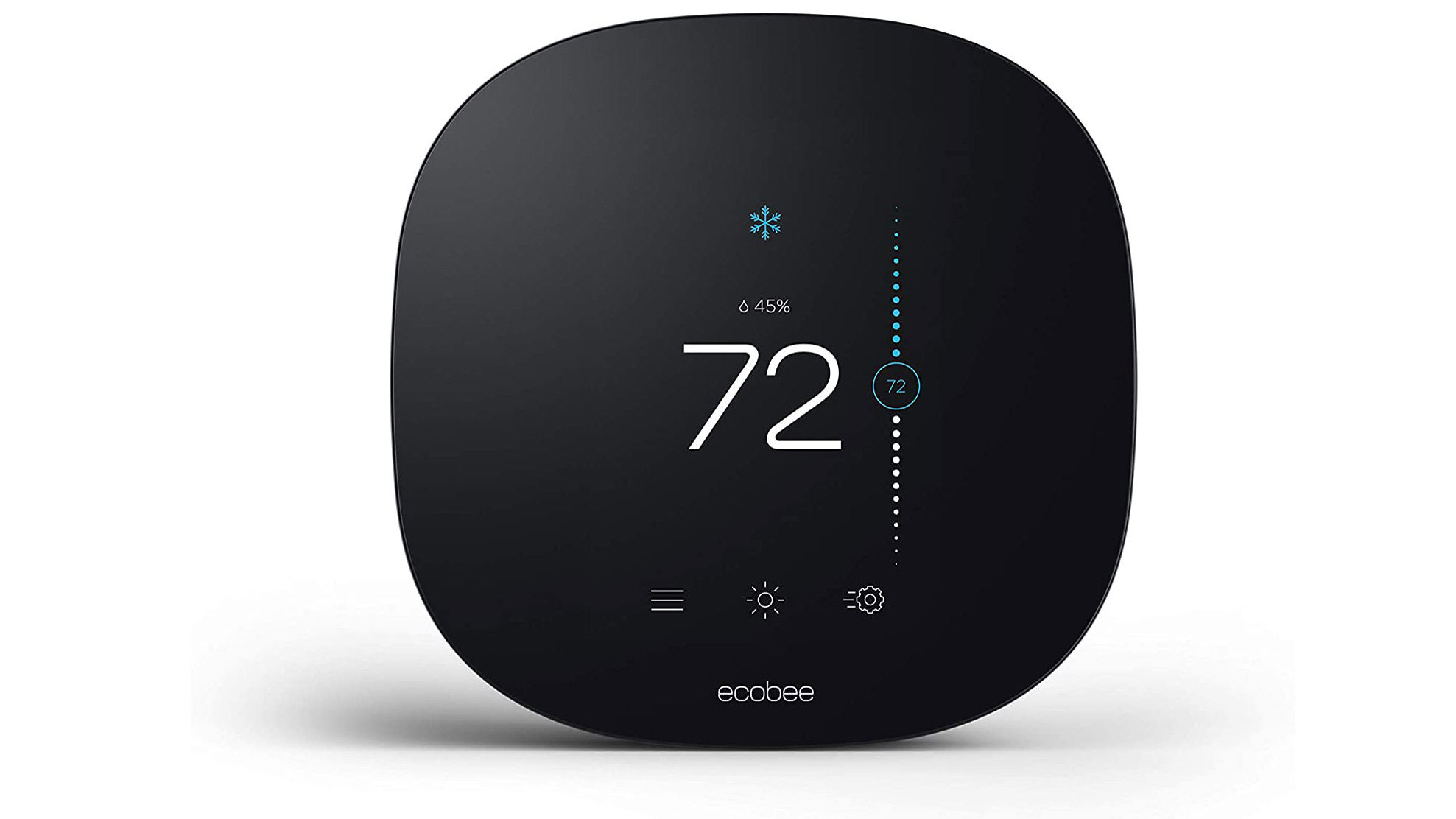
OK, so not everyone needs another device with Alexa built-in. (We get it, guys, you can build Alexa into anything!) If you're in the camp of people with too many Alexa devices, the Ecobee3 Lite is the perfect solution - it's just the smart thermostat without the smart assistant.
Easy to install, and simple to use, we were impressed with the AC Overcool to Dehumidify feature, which utilizes your AC to lower the indoor humidity
Now, that said, the Ecobee3 is still compatible with all the leading smart home ecosystems. (Ecobee was the first smart thermostat compatible with Alexa, believe it or not.) But if you want the all the extras, like room sensors that can detect temperatures in certain spots in your home, you'll have to buy them separately.
How we test smart therostats
To find out which are the best smart thermostats on the market, we assess how easy they are to install and control. We evaluate how responsive they are when it comes to switching the heating and cooling systems on or off, from a smartphone, both when we’re away from home and close by. We also judge how effectively AI amends the heating and cooling schedule based on how quickly or slowly your house changes temperature, along with any sensors that detect activity (or lack of it) and open windows.
We also appraise each design on how durable it is, and how effectively Alexa, Google Assistant or Siri respond to commands related to the smart thermostat. We also assess any extra kit available for the smart thermostat, such as hubs and radiator valves, and consider whether it requires reading a thick instruction manual before use.
What to consider when buying a smart thermostat
Before selecting the right smart thermostat for you, there are some aspects to consider.
As we’ve already mentioned; there are two types of smart thermostat to consider. Smart thermostats that control your system as a whole are usually more affordable and easier to install than smart thermostats that offer zonal control. However, you may find you’re still heating or cooling rooms that you’re not using, and subsequently wasting energy and money.
Smart thermostats that offer zonal control are more expensive as you’ll need to install a smart valve on each radiator or cooling outlet - this allows you to heat or cool each individual room to a different temperature.
Some smart thermostats use AI to adjust your heating and cooling schedule based on how long it takes your home to heat up or cool down, while others include sensors that will automatically switch the heating and cooling system off if they detect an open window, or think no-one is using the house at the time, saving even more energy.
Finally, not all smart thermostats are compatible with all voice assistants, so if you already use a voice assistant in your home, check whether it will integrate with your chosen smart thermostat. Also consider whether it will integrate with other smart home devices you already own such as home security cameras, video doorbells and smart lights.
Is it worth getting a smart thermostat?
Unsure about whether a smart thermostat is worth it? It’s no surprise given these are one of the most expensive smart home devices on the market, and they are fiddly to install too, which means many of us will end up employing a professional to take on the installation.
However, smart thermostats can make life easier as well as potentially put an end to wasting energy. If you’re going to be late home from work, you can switch the heating or air conditioning off remotely, so it's running full blast in an empty house. Similarly, if you’ve been away on holiday, a smart thermostat can make sure your house is at a cozy temperature as soon as you walk through the door, rather than having to wait hours for the property to warm up as the HVAC system has been switched off for a week or two.
When it comes to saving money, many smart thermostats make bold claims about just how much you can claw back by installing one. Energy-saving standards firm Energy Star estimates having a smart thermostat installed will use around 8% less energy a year, equating to $50 in the US - although this will differ in other territories.
How you use your heating and cooling system will also affect just how much of a saving you make. If you have it running all the time, then chances are you’ll generate some hefty savings, but if you already use a schedule to adjust the temperature in your home, the savings won’t be as big, but every little helps.
Either way, we certainly believe that the convenience and savings a smart thermostat offers make it more than worth it.
How do smart thermostats work?
Smart thermostats connect to your home Wi-Fi network and ensure an app on your smartphone, or a voice assistant, can be used to switch your home’s heating and cooling system, even if you’re not at home.
As well as adjusting the temperature in your home, most smart thermostats also enable you to set schedules, provide a report charting your energy use and even stop your heating coming on at all, for example because you’re heading out of town.
Like most home smart home gadgets, smart thermostats can also be used in home automations that see other smart home gadgets, such as smart lights and smart plugs, controlled at the same time. So you can turn the heating up, dim the light and watch your favorite TV show with one command.
- Now you've got the best thermostat, check out our Best security camera round-up
from TechRadar - All the latest technology news https://ift.tt/3laUbPl

0 coment�rios: